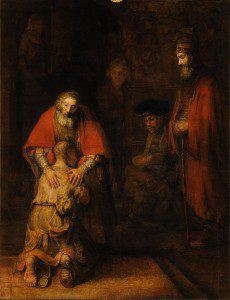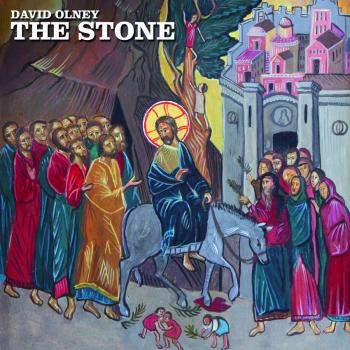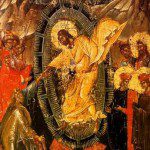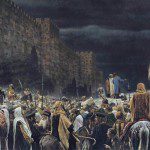
repentance and rest
I was surprised recently to come upon a line in Isaiah that helped me rethink repentance: “The Holy One of Israel says: ‘In repentance and rest is your salvation, in quietness and trust is your strength’” (Isaiah 30:15). What surprised me was the pairing of repentance and rest—as though the two simply belonged together. As though the notion of repentance didn’t come with an unsettling “or else” clause.
The term “repent” has been contaminated by caricature: it’s easy to associate it with thundering revival preachers in popular films and satirical literature for whom “Repent!” is always followed by an exclamation point and a threat. But the caricature is drawn from the lived experience of many who grew up in churches where Jesus’ invitation to a life of forgivenness and freedom had gradually, tragically given way to punitive messages that seemed to have more to do with crowd control. Jacqueline Woodson’s poignant, edgy poem “Church,” for instance, begins with a not altogether happy memory:
On Sundays, the preacher gives everyone a chance
to repent their sins. Miss Edna makes me go
to church.
Somehow a “chance to repent” doesn’t sound to her, or to many others, like good news.
But it is to Isaiah. In biblical writings the invitation to repent often comes with a promise. The writer of Proverbs urges his son, “Repent at my rebuke! Then I will pour out my thoughts to you, I will make known to you my teachings” (1:23). And Jeremiah delivers this message from God: “If you repent, I will restore you” (15:19). Ezekiel exclaims simply, “Repent and live!” In these and many other moments in biblical stories, repentance is presented as an opportunity—a door waiting to be opened. If you (and if we together in this overconsuming, militarized culture) turn away from what is besetting or distracting or diminishing or addicting, you will see that what awaits you is a gift: wisdom, restoration, healing, the life you’ve been missing. John the Baptist makes the promise very present: “Repent, for the kingdom of heaven has come near” (Matt. 3:2). It’s not a promise of a happier future, but a reality already available to those who turn around, wake up, and notice.
Still, it’s not altogether easy. “Teach me how to repent,” John Donne wrote, knowing as he did, an Anglican priest driven by lust and memories of ill-spent youth, that repentance isn’t once and for all, but a way of life.
That it might be a joyful way of life seems a paradox, indeed. But repentance isn’t just sorrow for one’s wicked ways; it is a release from regret. In Paul’s letter to the Corinthians—wayward folks apparently, who bickered and scrapped and gossiped and indulged a good bit—he speaks of “repentance that leads to salvation and leaves no regret.” Repentance opens a pathway to richer, fuller life—the life you were meant to lead. Regret keeps you stuck.
And repentance, to return to Isaiah, allows you to rest. I think of the many times I’ve heard—and said—some version of “I’m wrestling with . . . “ “I’m struggling with . . .” I’m working on . . . “ changing a habit, coming to terms with self-defeating patterns, releasing resentments or guilt or old confusions. Repentance allows us to rest in forgiveness, regroup, and, rather than wrestling, float for awhile, upheld while we learn to swim in the current. Or walk unburdened, or do a dance of deliverance, day by day releasing the past and entering fully, with an open heart, into the present where an open heart is waiting to receive us.

















